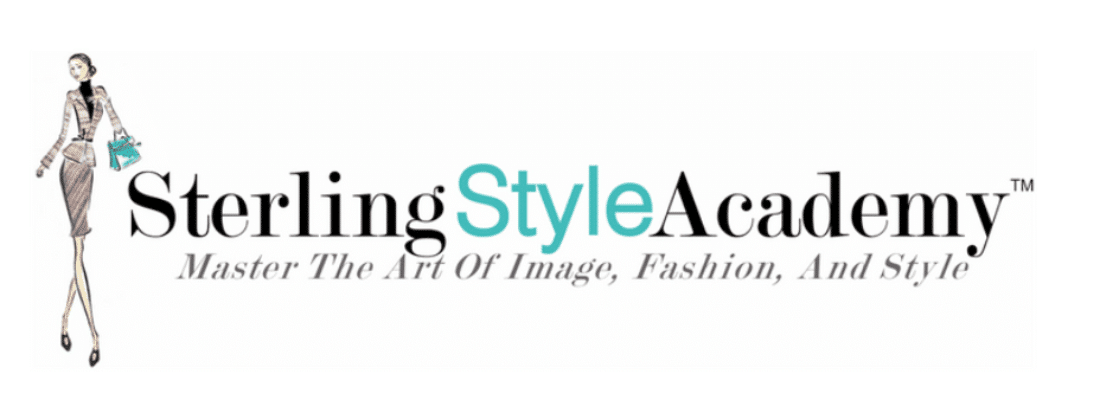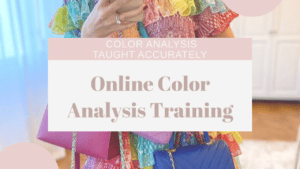Cure Your Shopping Addiction: Symptoms, Causes, and Treatment
Shopping addiction is a serious problem that affects many people across the world. It is characterized by excessive shopping behaviors that become compulsive, leading to significant financial and social difficulties.
Common symptoms of shopping addiction include an inability to resist impulses to shop; persistent thoughts or cravings about shopping; spending more time than intended shopping or browsing on shopping sites; engaging in secretive or dishonest behavior related to shopping; feeling guilt, shame, anxiety, depression or hopelessness after shopping; and frequent returns of purchased items.
The causes of shopping addiction are complex and often involve multiple factors including psychological issues such as low self-esteem, mood disorders such as bipolar disorder or depression, personality traits such as impulsivity and novelty seeking behaviour, environmental triggers such as stress or boredom, and social issues such as peer pressure. Additionally, some people may be genetically predisposed to developing a shopping addiction.
If you think you might have a shopping addiction, it is important to seek professional help from a mental health practitioner. A combination of cognitive-behavioural therapy and medications can be used to treat the underlying psychological issues related to shopping addiction and help the individual work towards controlling their behaviour. With proper treatment and support, recovery from shopping addiction is possible.
By understanding more about shopping addiction and recognizing its symptoms, we can better prevent it from taking hold of our lives. Taking proactive steps like setting limits on how much time we spend shopping or browsing online stores can go a long way in helping us to lead happier and healthier lives.
If you or someone you know is struggling with shopping addiction, please contact your local mental health provider for assistance. With the right treatment and support, it is possible to overcome this condition and reclaim control of our lives. Or should you consider becoming a personal shopper, therefore you can spend other people’s money!
Shopping Addiction Symptoms: What Are the Signs of Shopping Addiction?
Shopping addiction is a serious and often overlooked mental health issue that can have far-reaching psychological effects. It occurs when shopping becomes compulsive, resulting in an individual spending a large amount of money despite the consequences. In some cases, it leads to financial hardship and debt.
Common signs of shopping addiction include:
- Preoccupation with shopping – consistently thinking or talking about shopping activity and purchases
- Feeling an urge to shop even if there’s no need for the item
- Increasing amounts of time spent on shopping activities
- Difficulty controlling spending habits or impulse buying decisions
- Engaging in secretive behavior around purchases and finances
- Excessive lying about how much money was spent or how much was saved
Shopping addiction can have significant psychological effects. The individual may experience feelings of guilt and shame for their overspending, leading to low self-esteem, depression, and anxiety. Shopping addictions can also lead to financial difficulty and debt which further compounds these negative emotions. Furthermore, shopping addiction often leads to social isolation as the individual engages in deceptive behaviors in order to hide their addictive behavior from family or friends.
If you or someone you know is exhibiting symptoms of shopping addiction, it’s important to seek professional help. With the proper help, individuals suffering from shopping addiction can learn healthy coping mechanisms and gain the tools they need to break free from compulsive buying behaviors.
By being aware of the signs and symptoms of shopping addiction, we can all help to create a more supportive environment for those affected. With early detection and intervention, individuals with shopping addictions can begin to take steps towards living healthier lives.
Furthermore, becoming a personal shopper is an effective way to break away from shopping addiction while still having access to the world of fashion. With this job, individuals can fulfill their need for new clothes without being controlled by the feeling of impulsiveness and overspending. As a personal shopper, they can help others find just what they’re looking for while still fulfilling their own shopping needs. It’s also a great way to make some extra money on the side!
If you or someone you know is exhibiting signs of shopping addiction, it’s important that you reach out for help immediately. With proper treatment and counseling or turning it into a career, individuals suffering from shopping addictions can take control of their lives and begin living healthier lives.
Shopping Addiction Causes
Shopping addiction can be hard to recognize and even harder to let go of. People struggling with this disorder may find their spending habits out of control, leading to debt and stress. Although it might be difficult, there are ways to break free from the cycle of shopping addiction before it turns into an even bigger issue.
So what are the causes of shopping addictions? Common reasons include financial hardships, boredom or loneliness, stress relief, and low self-esteem. Many people also feel that shopping is a way to “treat” themselves by purchasing items they normally wouldn’t have access to. These activities can boost positive feelings but only temporarily – eventually creating a need for more consumption in order to achieve those same feelings again.
The psychological effects of shopping addiction can be severe. Along with debt and financial troubles, individuals may experience mood swings, guilt or shame, and feelings of helplessness as they become trapped in a cycle of shopping and spending. Shopping addiction can also lead to social isolation as individuals try to hide their purchases from friends and family.
If you think you might be dealing with a shopping addiction, there are ways to get help. Becoming a personal shopper is one such option – it allows you to channel your need for shopping into something productive while still getting the same satisfaction from buying items. You’ll no longer have to worry about an excessive budget or having too much stuff around the house; instead, you can use your skillset to help others with their shopping needs. In addition, personal shopping can provide a great income that doesn’t add to your debt load or stress levels.
Shopping addiction may be difficult to overcome at first, but it’s possible to break the cycle and become a productive member of society once more. By understanding the causes of this disorder and looking for ways to channel your urges in healthier directions – such as becoming a personal shopper – you can make progress toward recovery. With the right guidance and support, you can gain control of your spending and start living life on your own terms again.
What Are Symptoms of a Shopaholic?
We’ve all heard the term shopaholic, but what exactly does it mean and how do you know if you are shopping too much? Shopping addiction can lead to financial ruin and emotional distress. In this blog we will explore shopping addiction causes and symptoms of a shopaholic, as well as provide tips on how to break free from shopping addiction.
First off, let’s look at some signs that may suggest an individual is a shopping addict:
- Spending more money than their budget allows for – shopping can become so out of control that individuals spend far more than they have in their bank account.
- Shopping for things they don’t need or buying multiple versions of the same item – shopping addicts often buy things just for the sake of shopping and do not need the items they are buying.
- Feeling guilty, embarrassed, or ashamed after shopping – shopping addicts feel bad about their shopping habits and may even attempt to hide their shopping sprees from family members or friends.
The causes of shopping addiction vary depending on the individual; stress or depression can lead to excessive shopping as a way to cope with difficult emotions. It is also possible that individuals become addicted to shopping as they gain pleasure from it, just like an addict gets pleasure from drugs or alcohol. Financial difficulties such as debt can also contribute to shopping addiction by providing an escape from worries and financial pressures.
So now that we know what shopaholic symptoms look like, how do we break free from shopping addiction? One strategy is to become a personal shopper. Personal shopping can provide an opportunity for people with shopping addiction to find joy in helping others shop, rather than shopping for themselves. Furthermore, this role can offer structure and discipline since it requires individuals to focus on other people’s needs instead of their own. Finally, it provides financial stability because shoppers get paid for their work and will not be tempted to overspend on themselves.
Ultimately shopping addiction is a serious issue that should not be taken lightly. If you think you may have shopping addiction or are struggling with financial troubles due to excessive spending, it’s important to seek help and take steps towards recovery. Becoming a personal shopper could be one way to break the shopping addiction cycle and help you regain control of your finances.
Remember that shopping does not have to lead to financial disaster. With the right steps, shopping can become something enjoyable again, without going overboard. If you think shopping addiction may be affecting your life, reach out for help today!
This blog is brought to you by Sterling Style Academy. We teach you How to Become a Personal Shopper and provide Personal Shopper Services – helping people find joy in shopping responsibly. Visit us at online.sterlingstyleacademy.com for more information on our online courses and how we can help get your shopping back on track!
Does Retail Therapy Really Work?
Have you become so obsessed with shopping that it’s become like a drug? You might be a shopaholic. Shopaholics have become an increasingly common phenomenon in recent years, and they often turn to retail therapy as a way to cope with depression, anxiety, and other issues. But the truth is that retail therapy can quickly become an addiction if not managed properly.
So what are the symptoms of being a shopaholic? Common signs include spending large amounts of money on unnecessary purchases, buying items impulsively without thinking about them first, or feeling guilty after making purchases. If any of these sound familiar to you then it’s time for some serious self-reflection.
The good news is that there is hope for shopaholics. One of the best ways to get back on track is to become a personal shopper. By taking control of your shopping habits, you can become more mindful of each purchase and learn how to resist temptation and make smarter decisions when it comes to spending money.
The benefits of becoming a personal shopper are numerous – not only will you be able to save money, but you’ll also become the boss of your own shopping decisions. Personal shoppers are equipped with the knowledge and expertise to help people make better decisions when it comes to their purchases, so they can become happier, healthier shoppers in the process.
So if you’re feeling overwhelmed by retail therapy, why not become a personal shopper? It’s a great way to become more conscious of your spending habits and become in control of your shopping addiction. Take the first step towards financial freedom today!
Struggling With a Shopping Addiction? Become a Personal Shopper
If you’re struggling with a shopping addiction, become a personal shopper! It may sound counterintuitive, but retail therapy isn’t as bad as it seems. With the right shopping addiction support in place, becoming a personal shopper is an effective way to recover from compulsive buying.
For one thing, being a personal shopper gives you control over your urge to shop. Instead of losing yourself in hours of impulsive purchases, become the one responsible for helping other shoppers find the perfect items for their needs. This will give you the opportunity to become more conscious about what and why you purchase things – it’s much easier to become aware when someone else is relying on you instead of just yourself!
Plus, professional experience as a personal shopper can become an invaluable asset when managing your shopping addiction. With knowledge from real-world experiences, you become better equipped to make wise choices in the future and more mindful of how to handle any retail-related situations.
Overall, becoming a personal shopper is a great way to reduce the risk of relapsing into compulsive buying while at the same time providing yourself with an outlet for developing skills that can help you become more aware and responsible when it comes to shopping. It’s not only beneficial for those recovering from shopping addictions – it also provides you with useful experience that will benefit your career!
If you’d like some assistance finding appropriate shopping addiction support or would like advice on how to become a personal shopper, don’t hesitate to reach out. Help is always available – you just have to take the first step!
It’s time to become your own personal shopping therapist and regain control over your spending habits. With the right resources and support, becoming a personal shopper can help you manage your shopping addiction more effectively and become more mindful of how you shop in the future. Don’t wait any longer – take charge of your recovery today!
One of the best places to become a personal shopper is with Sterling Style Academy. As multiple award-winning training institution, we provide you with premier training and resources for developing the skills needed for becoming an effective personal shopper. The academy consists of like-minded individuals who are all dedicated to helping each other become successful in their respective fields – no matter what that entails! So, if you’re looking for shopping addiction support and would like to become a personal shopper, look no further than Sterling Style Academy. With our help, you can start your journey towards retail therapy and become more mindful of how you shop moving forward. Take the first step today!











